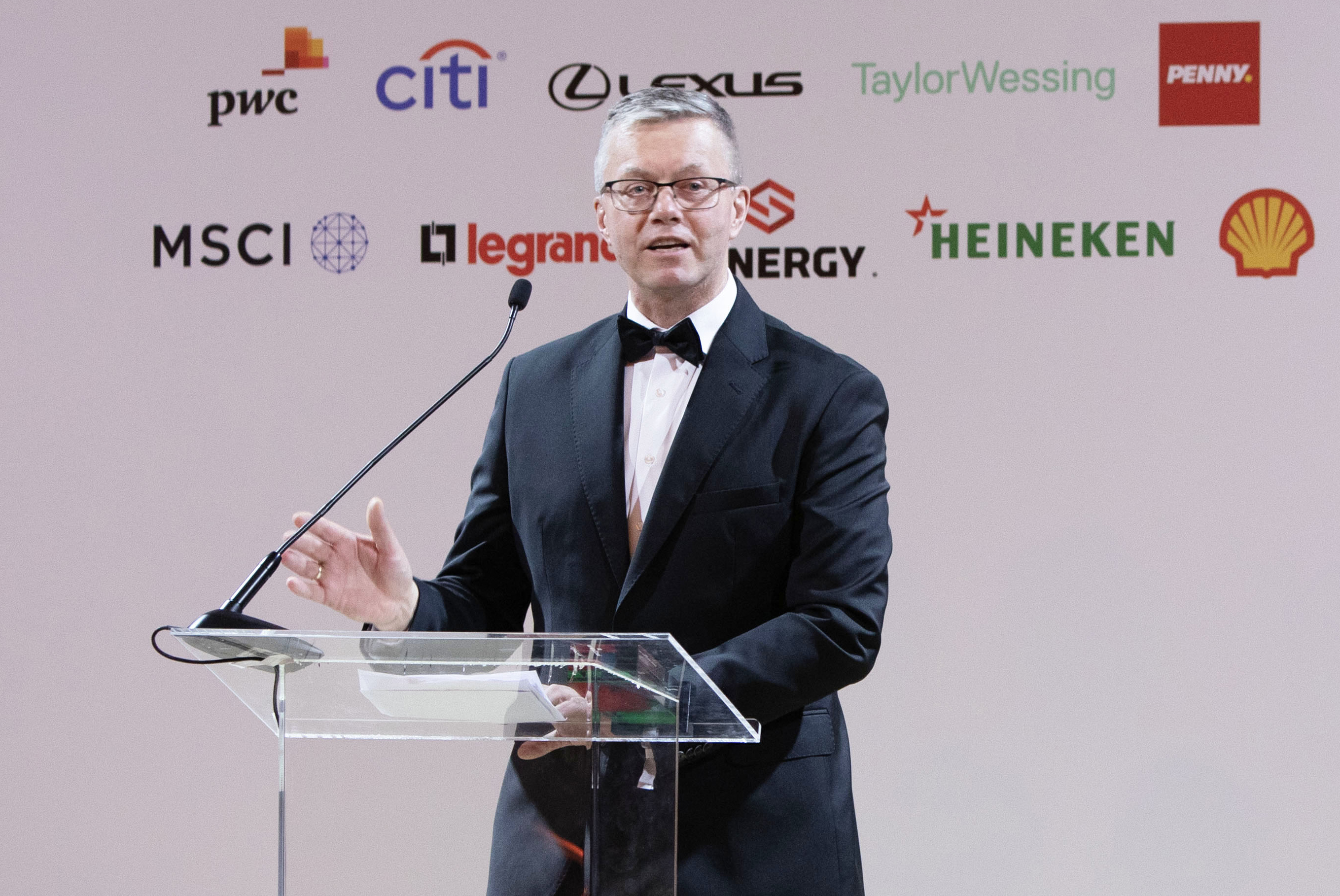Looking for new solutions

The crisis seems not to be temporary, and nothing will ever be the same as it was before 2008, say Dr. Eszter Kamocsay-Berta, Local Partner and Dr. Ákos Kovách, Senior Associate of Gide Loyrette Nouel Budapest. According to the legal experts it is a whole new skill set, and also a whole new mindset that is needed to best serve today’s clients under the new circumstances in a rather volatile and constantly changing economic environment.
We have kept hearing about the economic slowdown for the last four years, but one might think that the growing turmoil is a great source of new assignments for law firms. Bankruptcies, the concentration on certain markets, with major players acquiring their smaller competitors all create room for an increasing number of M&A transactions.
ÁK: True, there are certain specific cases, when trouble means work for law firms, but in the current situation it is definitely not a growing number of transactions that characterizes the market. In fact, what we see in today’s environment is that the volume of M&A transactions has plunged, partly due to companies running out of financial resources, partly because the les- sons of 2008 force everybody to steer clear of unnecessary risk. There is, however, increased activity in the regulatory segment, where companies are struggling to cope with the rapidly changing legal environment. Gide Loyrette Nouel opened its Budapest office in 1993, almost two decades ago, so we can say that we have seen a thing or two in the region. This new situation, however, triggers completely new challenges, and we have to take a different approach to provide our clients with the solutions they need.
EKB: What we see since 2008 is not an ordinary crisis that we will simply have to wait out. It is rather a complete shift of paradigms, and whether we like it or not, we will have to face the fact that there is no way back to “business as usual”. Some three years ago Gide Loyrette Nouel’s Budapest office was fully restructured, partly in answer to these changes. It was decided to reinforce the existing practice groups and broaden our client base. This new structure also reflects the different market tendencies and the redefined needs of our clients since the financial shock of 2008.
While we tend to talk about the crisis as a homogenous period, this four-year time is actually more complex than that. Just like we saw a slight recovery in mid-2009, and a second decline in 2010, by now we see that companies have practically run out of all of their resources and reserves. It is, therefore, obvious that they completely abandon their previous policies in search of new solutions. I strongly think that this approach is here to stay.
Are there differences amongst specific sectors in terms of slowdown and the volume of M&A activity that still exists?
EKB: Sure, there are. The real estate segment is still at rock bottom, and despite optimistic voices there are only slight signs of recovery. There is some movement in the energy industry, although with the disappearing of the market- based financing primarily it is State-financed projects that keep soldiering on. The chemical segment, the car industry and the food sector also show some activity whereas some signs of regression may already be perceived, especially in the food industry
On the other hand, we have to highlight that there are still a few standalone projects that are independent from the market tendencies. An example could be the green field investment of the Danish toy manufacturer LEGO, in a new factory in Nyíregyháza. The key to the basic changes is that among the continuously changing legal environment, it becomes difficult for companies to work out and implement their business plan. As long as macroeconomic necessities keep overwriting the demand for legal certainty, these risks, i.e. risks arising from the change of law, are almost impossible to hedge.
What are the most important new challenges this new situation means for law firms?
EKB: In today’s economic environment, we always have to go the extra mile and provide our clients with more than just answers to their questions. We have to gain a full understanding of the business concept, identify and assess possible risks attached to their business objectives and be able to give them possible solutions to their problems,
We talked about Hungary’s regulatory environment, but Gide Loyrette Nouel’s Budapest office also operates as a regional center. The former Yugoslavian countries have a reputation for having a volatile legal sys- tem. How can you help your clients under those circumstances?
EKB: True, our Budapest office is a regional hub, and the Hungarian market aside, we assist and advise our clients on their projects in the former Yugoslavian countries, most prominently in Serbia, where we are in exclusive cooperation with a law firm that used to be Gide’s Belgrade office. We have to see that this is an emerging region, with lots of possibilities opening up just now, but neither the economic nor the legal environment are mature enough to make these markets safe enough for our clients. Our main task here is to fully structure our clients’ needs, and provide them with full- fledged solutions, including quality control. It’s important to see that the legal systems of these countries are simply not developed enough to accommodate a complex trans- action by the standards of our clients.
ÁK: These former Yugoslavian markets not only provide us with a significant amount of work, but they are also complex and complicated enough; however, we can handle them as one single pack- age based on these countries’ cultural and geographic proximity.
Do these different circumstances mean different approaches and strategies on your clients’ part?
EKB: It is generally perceived that there is a certain line that divides Central Eastern Europe, as the northern part of the region from the emerging markets, that mostly consist of the Balkan countries. While there might be problems on both sides, in terms of predictability and the maturity of the legal sys- tem, the two regions are still a world apart. The Republic of Serbia or other former Yugoslavian countries are still far from being in the same league as those states who have been members of the EU for almost a decade now. It is also natural that our clients have very different expectations of these markets, than they do for Hungary or Czech Republic, especially if they already have well-established business operations in these latter countries. These different expectations include accepting a higher risk factor, obviously in the hope of a bigger profit.
What makes our services unique is that, we have a complex view and extensive knowledge of the entire region, including former Yugoslavian countries.
Are the issues you as a law firm have to tackle in these countries of a different nature to those in Hungary?
EKB: Definitely, they are. As I said, the legal systems of these countries are not as mature as those of Hungary or the Czech Republic. As a consequence, we often have to face certain situations or scenarios which are simply not regulated by the law, so we have to deal with such issues in the contractual documentation. When this hap- pens, we obviously need to closely cooper- ate with our local partners, because on top of the general professional knowledge, we also have to make sure that the given con- tract is both secure and enforceable in the specific country’s legal environment.
Can you give us an example, where well- prepared contractual documentation can make up for gaps that exist within the legal regulations?
ÁK: Without entering into details, we had a recent acquisition assignment in Bosnia. The buyer first decided to entrust a local legal firm to assist them throughout the deal, but they soon got the answer from the local adviser that the legal scheme they wanted to implement was not possible under Bosnian law. It was at this point that we got involved in the deal, and with long and somewhat tiresome negotiations, we managed to close the deal in a way that satisfied the needs of every participant. This case was a good indication of the fact that, with our extensive experience and becoming a regional knowledge center in the past years, we are able to provide our clients with a unique level of services. While this means an extra cost for clients, the gains are even bigger, and we find that they are happy to pay for the legal security and quality we pro- vide them with.
Gide Loyrette Nouel is known to be an active player when it comes to transactions in the energy industry. What are the specific difficulties and characteristic issues of this field?
EKB: The issues of legal certainty and the drawbacks of a volatile legal environment are tangible in this industry. Since energy- related projects are always planned as long-term investments, to plan ahead for at least a 15-25 years’ timeframe is a huge issue in this sector. Another problem is the disappearing of market-based financing. The majority of the projects that are ongoing are funded by the State. And while we have a lot to do to meet our EU undertaking of increasing the rate of green energy production to 20% by 2020, and the minimizing of energy-dependency is still a priority, sufficient progress will still have to be boosted.
Financial difficulties aside, we also see a tendency of the government’s intentions, to play a more central role in this field. While these strategic moves might not have a direct impact on minor projects, still they have to be factored in, when analyzing the trends of this industry.
Note: All articles marked Expert Opinions are paid promotional content for which the Budapest Business Journal does not take responsibility
SUPPORT THE BUDAPEST BUSINESS JOURNAL
Producing journalism that is worthy of the name is a costly business. For 27 years, the publishers, editors and reporters of the Budapest Business Journal have striven to bring you business news that works, information that you can trust, that is factual, accurate and presented without fear or favor.
Newspaper organizations across the globe have struggled to find a business model that allows them to continue to excel, without compromising their ability to perform. Most recently, some have experimented with the idea of involving their most important stakeholders, their readers.
We would like to offer that same opportunity to our readers. We would like to invite you to help us deliver the quality business journalism you require. Hit our Support the BBJ button and you can choose the how much and how often you send us your contributions.







